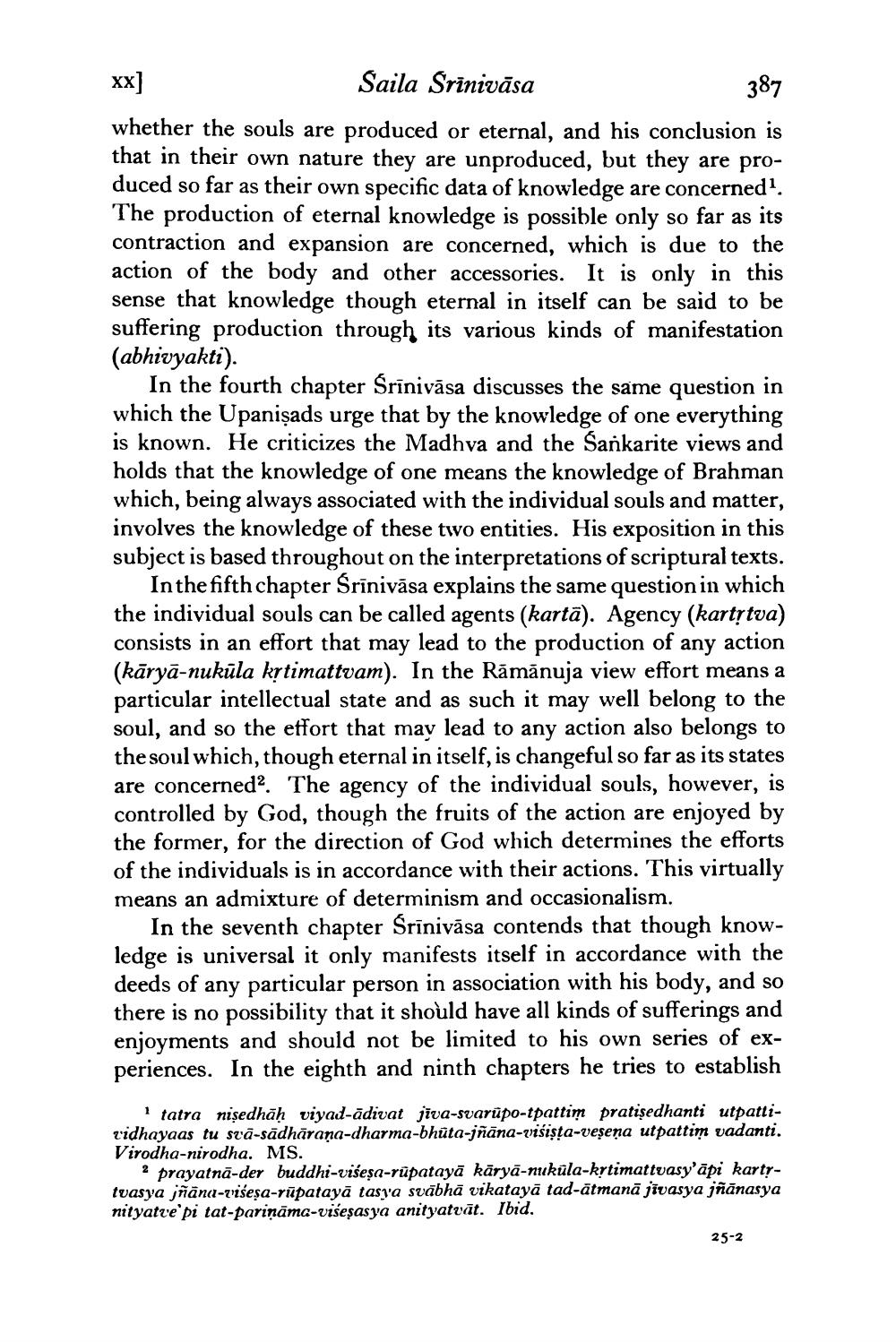________________
xx Saila Srinivāsa
387 whether the souls are produced or eternal, and his conclusion is that in their own nature they are unproduced, but they are produced so far as their own specific data of knowledge are concerned". The production of eternal knowledge is possible only so far as its contraction and expansion are concerned, which is due to the action of the body and other accessories. It is only in this sense that knowledge though eternal in itself can be said to be suffering production through its various kinds of manifestation (abhivyakti).
In the fourth chapter Srinivasa discusses the same question in which the Upanişads urge that by the knowledge of one everything is known. He criticizes the Madhva and the Sankarite views and holds that the knowledge of one means the knowledge of Brahman which, being always associated with the individual souls and matter, involves the knowledge of these two entities. His exposition in this subject is based throughout on the interpretations of scriptural texts.
Inthe fifth chapter Śrīnivāsa explains the same question in which the individual souls can be called agents (kartā). Agency (kartįtva) consists in an effort that may lead to the production of any action (kāryā-nukūla kặtimattvam). In the Rāmānuja view effort means a particular intellectual state and as such it may well belong to the soul, and so the effort that may lead to any action also belongs to the soulwhich, though eternal in itself, is changeful so far as its states are concerned. The agency of the individual souls, however, is controlled by God, though the fruits of the action are enjoyed by the former, for the direction of God which determines the efforts of the individuals is in accordance with their actions. This virtually means an admixture of determinism and occasionalism.
In the seventh chapter Srinivāsa contends that though knowledge is universal it only manifests itself in accordance with the deeds of any particular person in association with his body, and so there is no possibility that it should have all kinds of sufferings and enjoyments and should not be limited to his own series of experiences. In the eighth and ninth chapters he tries to establish
1 tatra nisedhāh viyad-ādivat jīva-svarūpo-tpattim pratişedhanti utpattiridhayaas tu stā-sādhārana-dharma-bhuta-jñāna-visista-veșena utpattim vadanti. Virodha-nirodha. MS.
2 prayatnā-der buddhi-visesa-rüpatayā kāryā-nuküla-kytimattvasy'āpi kartytvasya jñāna-višeşa-rūpatayā tasya svābhā vikatayā tad-ātmanā jīvasya jñānasya nityatve pi tat-pariņāma-višeşasya anityatvät. Ibid.
25-2




